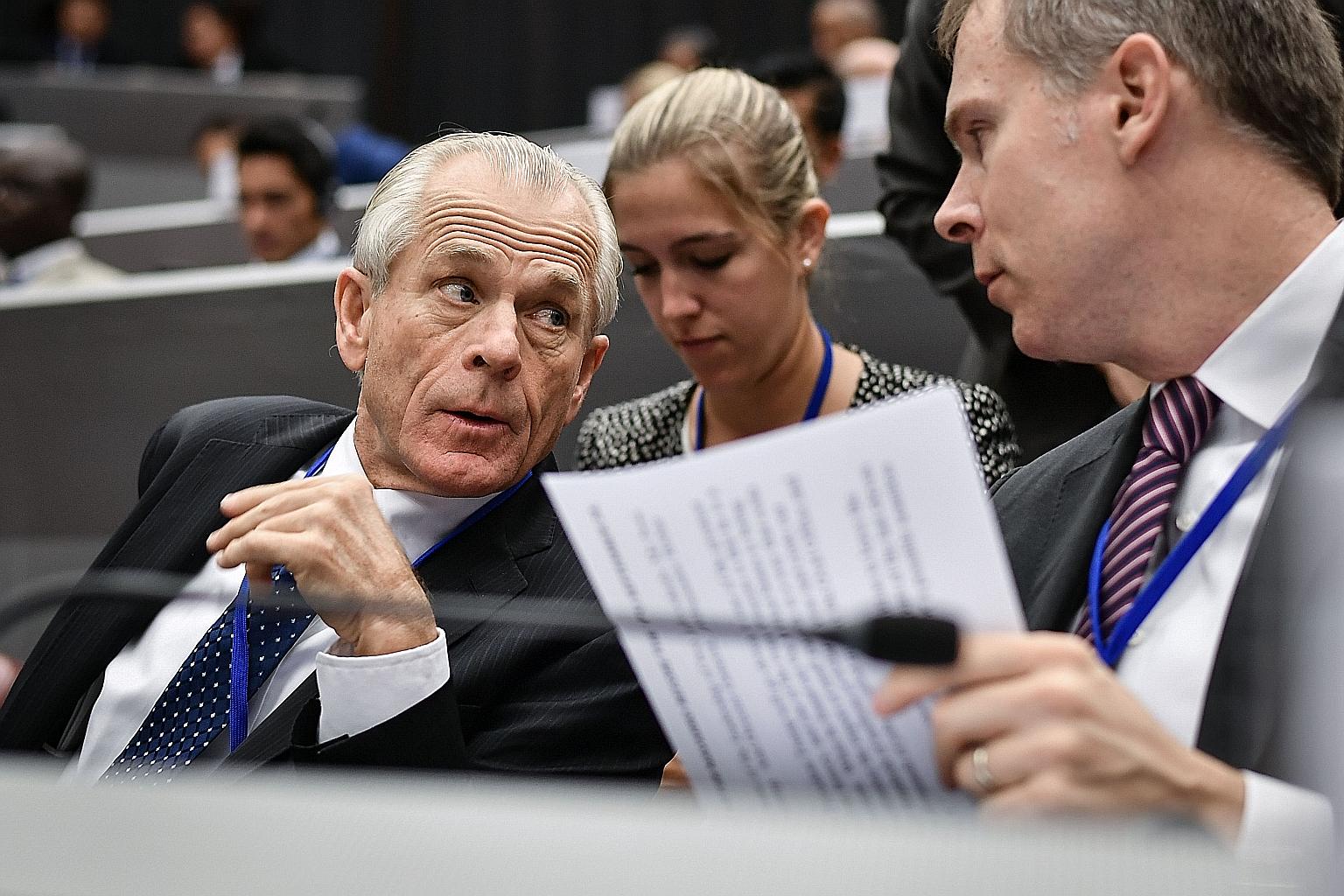US cracks down on counterfeit goods in warning shot to China
Sign up now: Get ST's newsletters delivered to your inbox

White House trade adviser Peter Navarro is sceptical that China would keep the promises it made in the partial trade deal.
PHOTO: AGENCE FRANCE-PRESSE
WASHINGTON • The Trump administration is moving swiftly to ensure that China is keeping its promises to protect US intellectual property, ratcheting up searches for counterfeit goods at ports and increasing pressure on e-commerce companies like Amazon to halt online sales of Chinese knockoffs.
The administration's effort, unveiled last Friday, included a Department of Homeland Security report detailing the extent of the influx of counterfeit products from China and the public health and economic risks they pose to the US.
The initiative serves as a warning to China, which this month reached a partial trade agreement with the United States, that the administration will aggressively monitor Beijing's commitments.
The 54-page report includes a series of recommendations and actions that the US government will take to crack down on certain products coming primarily from China, such as fake Louis Vuitton bags and car airbags, as well as illicit drugs including fentanyl, cocaine and Ecstasy.
Trump administration officials estimate that more than 100,000 packages a day from China contain items that could defraud or harm Americans.
As part of the trade agreement, China said it would work to combat copyright infringement and counterfeiting on e-commerce websites by penalising local merchants that repeatedly sell counterfeit goods.
The US will place more of the burden on e-commerce portals such as Amazon and Walmart.com by holding them liable for fake or illicit products that are sold by third-party sellers on their websites.
"Under current lax interpretations of the law, e-commerce platforms face virtually no liability for their counterfeit trafficking," Dr Peter Navarro, director of the White House Office of Trade and Manufacturing Policy, said last Friday.
Companies like Amazon have generally been exempt from legal liability for products sold by other merchants using their online platforms. Last year, however, Amazon acknowledged in its annual report that it could face "civil or criminal liability" for unlawful activities by its sellers, flagging it as a potential risk factor for the company.
Amazon last Friday defended its efforts to combat counterfeiting, noting that it has invested US$400 million (S$540 million) to root out the problem and gone beyond its legal obligations in the US.
The company acknowledged, however, that it was a continuing battle. "Amazon's anti-counterfeiting efforts are best in class, but we recognise they are not perfect and will continue to innovate and work with policymakers and law enforcement to protect brands and customers," a company spokesman said.
The Trump administration is also increasing scrutiny of shipping companies, warehouses and distribution centres that e-commerce businesses use to import products from China. And it is planning to more carefully vet smaller packages, valued at less than US$800, which are currently exempt from some Customs entry regulations, including tariffs.
Dr Navarro, one of US President Donald Trump's most hawkish trade advisers, has been sceptical that China would keep the promises it made in the partial trade deal.
That agreement, which Dr Navarro cautioned against entering into, includes purchases of up to US$50 billion in farm products over the next two years, greater market access for American financial services firms, and an end to China's forced technology transfer requirements as part of mergers and joint ventures involving American businesses.
But illicit imports remain a major concern. Mr Trump has been particularly focused on shipments of fentanyl coming from China.
Despite a pledge by Chinese President Xi Jinping to crack down on illegal production and exports of fentanyl, shipments of the potentially deadly drug have not abated, and no curbs were included in the trade pact.
Last summer, Mr Trump called on Amazon, FedEx and UPS to screen for and refuse any deliveries of fentanyl coming from China.
Since the agreement, Dr Navarro has been working with Customs and Border Protection and the Department of Homeland Security on a project known as Operation Mega Flex, which will screen thousands of additional packages coming from China to assess whether the flow of counterfeits is slowing.
In the first three "blitzes", which entailed searches of more than 20,000 additional packages from China and Hong Kong, about 5 per cent contained illicit products.
"As fast as cigarettes can kill you, those counterfeit cigarettes from China can kill you even faster," Dr Navarro said last Friday.
NYTIMES


